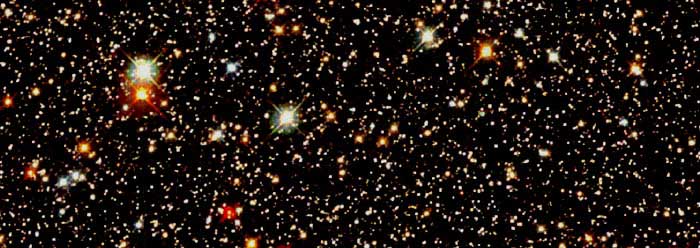Perhaps the question most often asked of Biblical creationists is how light from distant stars could get to the earth in a few thousand years. People usually want a quick one-sentence answer to this question, but to discuss it fairly would require understanding of many complex and seemingly counterintuitive laws of physics. To discuss it rigorously requires advanced training in mathematics and relativity theory. As a result, the simplistic answers are usually indefensible, while the rigorous answers are inaccessible to most people.
For those willing to investigate, Biblical scholars and scientists have written a great deal on this topic. For now, let me discuss a strategy for dealing with critics who use the question to discredit the reliability of the Bible.
A fair question deserves a fair answer. Some critics of Biblical creationism, however, use this question to play "king of the hill." Not getting the one-sentence answer they demand, they think they have established the superiority of the old-age contender, the Big Bang. I find it helpful in such situations to level the playing field. Supporters of the Big Bang have no cause for pride, because they have a light-distance problem, too! It is called the horizon problem. And it is serious.
According to the Big Bang theory, the universe expanded in all directions from its initial state of high density. In your mind's eye, follow a tiny region on its path; at no time would it come in contact with the particles going in a different direction. The universe would never have mixed; each part of space was beyond the "horizon" of each other part. Herein is the problem. The universe looks homogeneous and isotropic. This means all parts of space appear uniform at large scales. The temperature of the cosmic background radiation is uniform to within one part in 100,000. If no parts ever mixed, how could they achieve such striking uniformity of temperature?
The horizon problem is recognized as a serious difficulty by all secular cosmologists. It was part of the motivation behind an ad-hoc proposal in 1980 called inflation. In addition, the standard Big-Bang model is plagued by the lumpiness problem (matter is structured into stars and galaxies), the entropy problem (the initial "cosmic egg" would have had to start with a high degree of order), the ignition problem (no cause for the expansion), and other more recent difficulties, like the amazingly precise balance between the acceleration rate and density.
Critics of Biblical cosmology, in other words, have their own bundle of problems. Any serious discussion of the light-distance problem should begin with the recognition that it is an issue for all sides. Science is limited in fathoming such a complex subject as how the universe came to be. We have an Eyewitness that gave us enough information, corroborated by numerous other avenues of study, to justify putting our trust in His Word.
*David F. Coppedge works in the Cassini program at the Jet Propulsion Laboratory. (The views expressed are his own.)
Cite this article: Coppedge, D. 2007. The Light-Distance Problem. Acts & Facts. 36 (6).




